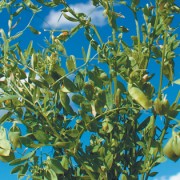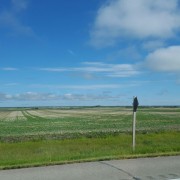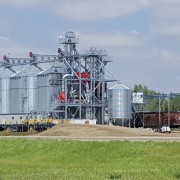Critical State – Overspending
Cash in the bank is a good thing. Spending it because it is there is the scourge to many farm’s financial strength.
Years ago, when I was still in banking, I was doing what can be argued young bankers should, or should not, do…I was listening intently to some well tenured, long-in-the-tooth bankers. It was good because of the insights they brought. It was not good because of the cynicism they had. One cynical comment in particular stayed with me; it was when that grizzled old banker said, “Farmers hate having money in the bank…as soon as it’s there, they go spend it!”
Maybe that comment showed his lack of insight into how a farm business is run. Maybe he was fairly accurate in his conjecture in how it relates to the psychology and mindset of a farmer. Although, I believe that “hate” is the incorrect descriptor for how farmers really feel about cash.
You may recall reading Spending Less is More Valuable Than Earning More in this commentary a few months ago. I regularly read comments in ag publications and on Twitter about how “farmers are good at making money, but trying to keep some is the hard part.” Not for everyone…
Investing in your business is something not to be taken lightly. Every year, month, week, and day, farmers battle with the decisions of what to grow, how to fertilize it, what to spray, when to spray it, etc. With almost the same frequency, many farmers are also looking at the tools to get the job done (ie. farm equipment.) “Newer, bigger, better” seems to be the name of the game when it comes to equipment. And less frequently, farmers consider expanding the land base. Whether to rent or to purchase is but one of the questions pertaining to land.
It is my belief that the issue of overspending would not be an issue if more discipline was used in ensuring that all expenditures met an ROI (Return on Investment) threshold. I’ve learned about the following instances in the last year that clearly show a lack of understanding the concept of ROI:
- disastrous chickpea crops despite as many as 6 fungicide applications (at $15-$20 each, that’s an extra $90-$120/ac in inputs)
- $90/ac rent paid on 640 acres that has only 420 acres available in the entire section due to excess moisture (so he’s actually paying $137 per cultivated acre)
- inability to make loan payments because the operating line of credit is maxed out.
I have gone on record many times in my prognostication that credit, specifically operating credit, will be difficult to maintain (and likely impossible to get) in the not-too-distant future. Those operations that do not run on cash, therefore relying on operating credit, will face insurmountable hardship when credit policy changes.
Control your own destiny:
- Build working capital reserves, specifically CASH;
- Discontinue relying on operating and trade credit to cash flow your farm;
- Sell your production when it meets your profit expectations instead of when you need to make your payments (cash in the bank allows you to do this!)
Direct Questions
How would you describe the rationale employed when determining how to deploy resources, specifically cash?
As a percentage of your annual cash costs, what is your minimum cash balance to keep on hand?
From the Home Quarter
In a business within an industry that is renown to have multiple cash and cash flow challenges, it is not unusual to learn that adequate (or abundant) cash on hand is not common. And so when cash is available, the need (or temptation) to upgrade this or replace that can be too much to handle. Disciplined decision making, backed by a sound strategy, is often the difference between successful, highly profitable farmers and surviving, occasionally profitable farmers. Which would you rather be?
For guidance, support, or butt-kicking in developing your strategy, and the discipline to stick to it, please call or email my office.












Leave a Reply
Want to join the discussion?Feel free to contribute!